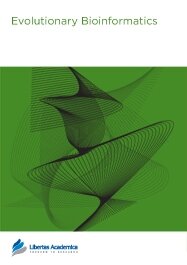

Publication Date: 28 Feb 2007
Journal: Evolutionary Bioinformatics

1Lab of Control and Systems Biology, Department of Electrical Engineering, National Tsing Hua University, Hsinchu, 300, Taiwan. 2Department of Evolution and Ecology, University of Chicago, 1101 East 57th Street, Chicago, IL 60637, U.S.A. 3Genomics Research Center, Academia Sinica, Taipei, Taiwan.
Abstract: Biochemical networks are the backbones of physiological systems of organisms. Therefore, a biochemical network should be sufficiently robust (not sensitive) to tolerate genetic mutations and environmental changes in the evolutionary process. In this study, based on the robustness and sensitivity criteria of biochemical networks, the adaptive design rules are developed for natural selection in the evolutionary process. This will provide insights into the robust adaptive mechanism of biochemical networks in the evolutionary process. We find that if a mutated biochemical network satisfies the robustness and sensitivity criteria of natural selection, there is a high probability for the biochemical network to prevail during natural selection in the evolutionary process. Since there are various mutated biochemical networks that can satisfy these criteria but have some differences in phenotype, the biochemical networks increase their diversities in the evolutionary process. The robustness of a biochemical network enables co-option so that new phenotypes can be generated in evolution. The proposed robust adaptive design rules of natural selection gain much insight into the evolutionary mechanism and provide a systematic robust biochemical circuit design method of biochemical networks for biotechnological and therapeutic purposes in the future.
PDF (357.16 KB PDF FORMAT)
RIS citation (ENDNOTE, REFERENCE MANAGER, PROCITE, REFWORKS)
BibTex citation (BIBDESK, LATEX)
XML
PMC HTML
Publishing in Air, Soil and Water and Water Research was the best experience I have had so far in an academic context. The review process was fair, quick and efficient. I congratulate the team at Libertas Academica for a very well managed journal.Magnus Karlsson (IVL Swedish Environmental Research Institute, Stockholm, Sweden) What Your Colleagues Say
Copyright © 2012 Libertas Academica Ltd (except open access articles and accompanying metadata and supplementary files.)
FacebookGoogle+Twitter
PinterestTumblrYouTube